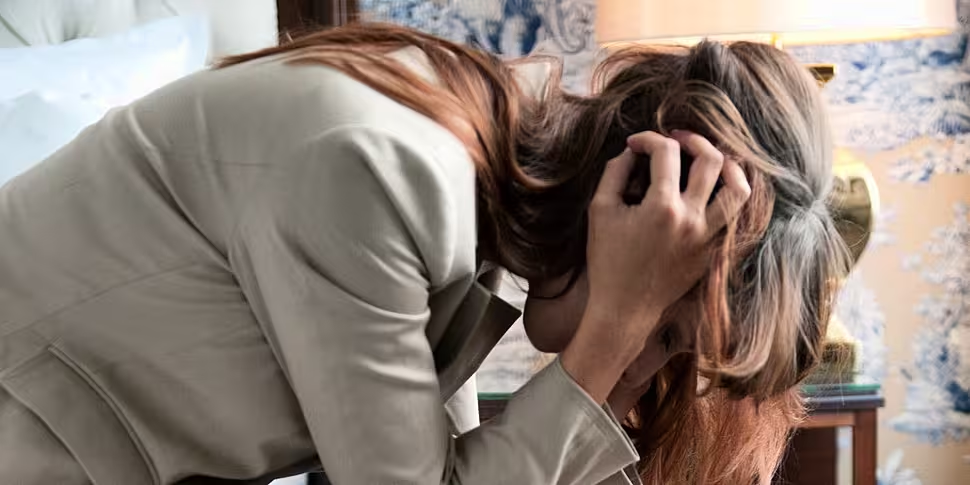An Irish woman who is experiencing the effects of long COVID says she doesn't even have the energy to leave the house.
Rachel was diagnosed with the virus in early October, but is set to be off work for at least seven or eight more weeks due to the lingering effects of the infection.
She spoke to The Hard Shoulder, as Newstalk looks at the coronavirus pandemic as one of the 20 most influential events of the past 20 years.
Long COVID refers to cases where people have persistent symptoms for weeks or months after being infected with coronavirus.
Rachel was diagnosed six months into the pandemic, when there were routinely many hundreds of cases being reported a day.
She said: "I didn't show any of the normal publicised symptoms - I had no cough, no temperature, no sore throat, I never lost my sense of taste or smell. It really felt like I was getting a sinus infection.
"By that weekend, I began feeling quite ill - very, very weak. I didn't trust my body - I was nervous going up and down the stairs. I was very dizzy, nauseous, [having] migraines.
"I'm young and healthy - I expected I'd be back in work in three weeks. That's really not the case - I had a call with a doctor on Monday, who certified me off for another eight weeks."
She said she had a very busy life before COVID-19, working full-time in a bank.
Being able to go to work is the thing she now most misses, as she "barely leaves" her own home.
She said: "I don't have the energy to leave the house.
"In my job, I interact with people day in, day out... it feeds me that human contact I need and love. I spend most days in the house on my own - that's the reality of it.
"When I have the energy to go out, I go out shopping - [then] in the afternoon, I can barely function... I have no energy."
Rachel said doctors still don't fully understand long COVID, and she's just 'one of thousands' experiencing longer-term effects from the virus.
She said: "What I'd like to get out there is don't assume because you're young and healthy that this isn't going to affect you.
"It's such a new virus, we don't really understand it - we can't assume anything.
"I can't assume that in four months time I'm going to be OK. All I want to do is feel normal again."
Early cases of COVID-19 in Ireland
The show also heard from Declan Connolly, one of the first people in Ireland to be diagnosed with COVID-19.
He and his wife had been visiting friends in Germany and Austria in February, as they do every year.
They arrived back in Ireland on Sunday March 1st - still an early point in the pandemic in Europe, despite the worsening situation in areas such as Italy.
He said: "On the Wednesday morning, we got a phone call from Germany to tell us that one of our friends - one of the people we'd been with - tested positive for coronavirus."
Declan and his wife immediately began self-isolating as they waited for a test.
However, he said there was some confusion at that stage, as testing systems were still being put in place.
He recalled: "Originally they were going to send an ambulance out to test us.
"The ambulance had arrived to the corner of the street... but there was a change of plan, and the ambulance turned back again, left in a few face masks and told us to keep isolating."
The following day, Declan's wife began to feel 'under the weather', and that's when a paramedic arrived to conduct a coronavirus test.
Within days, both Declan and his wife had tested positive and were brought to hospital - as was the case for all COVID-19 cases in the early stages of the pandemic.
Declan was discharged after five days, but at that stage his wife was starting to feel very unwell - finding it difficult to breathe.
He explained: "Even though we were only a couple of rooms away from each other in the hospital, we couldn't see each other.
"I could hear her voice on the end of the phone, struggling to breathe. There were a few days there when I was very, very concerned.
"It did take me a few weeks to shake it off, but I did shake it off. It took my wife that bit longer - she did end up with viral pneumonia. [It took] a couple of months, but she did get over it."









